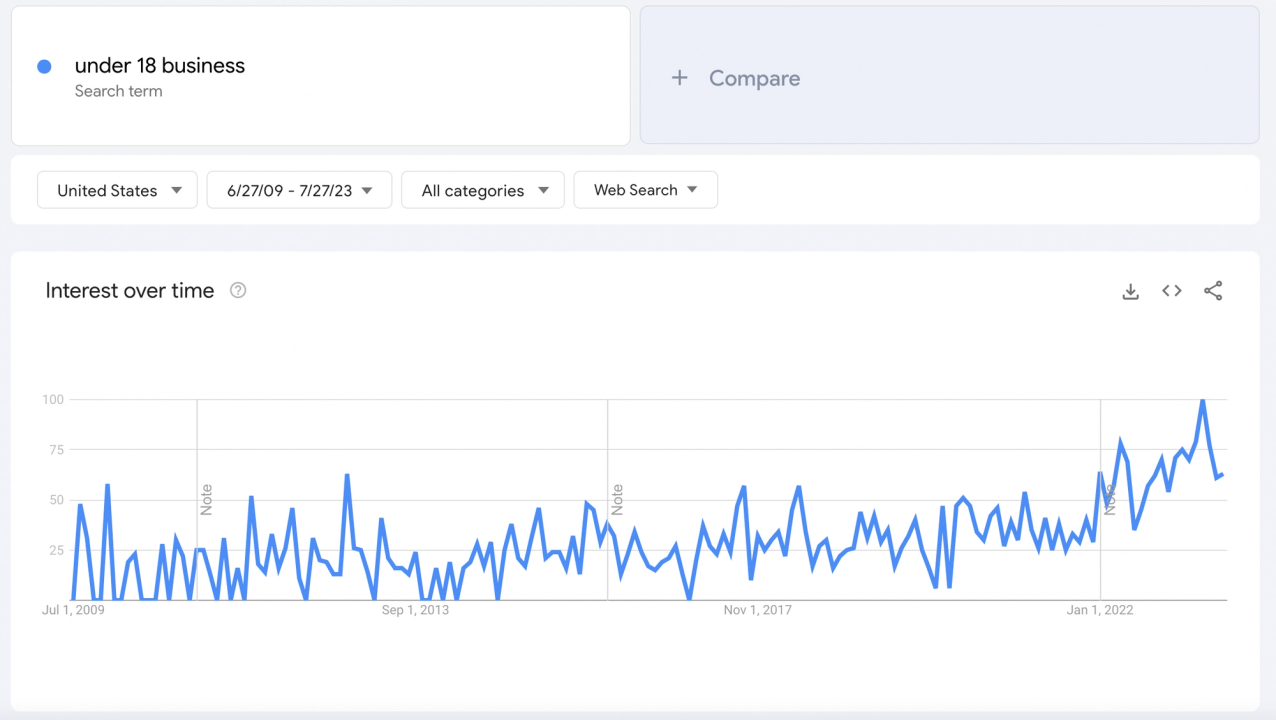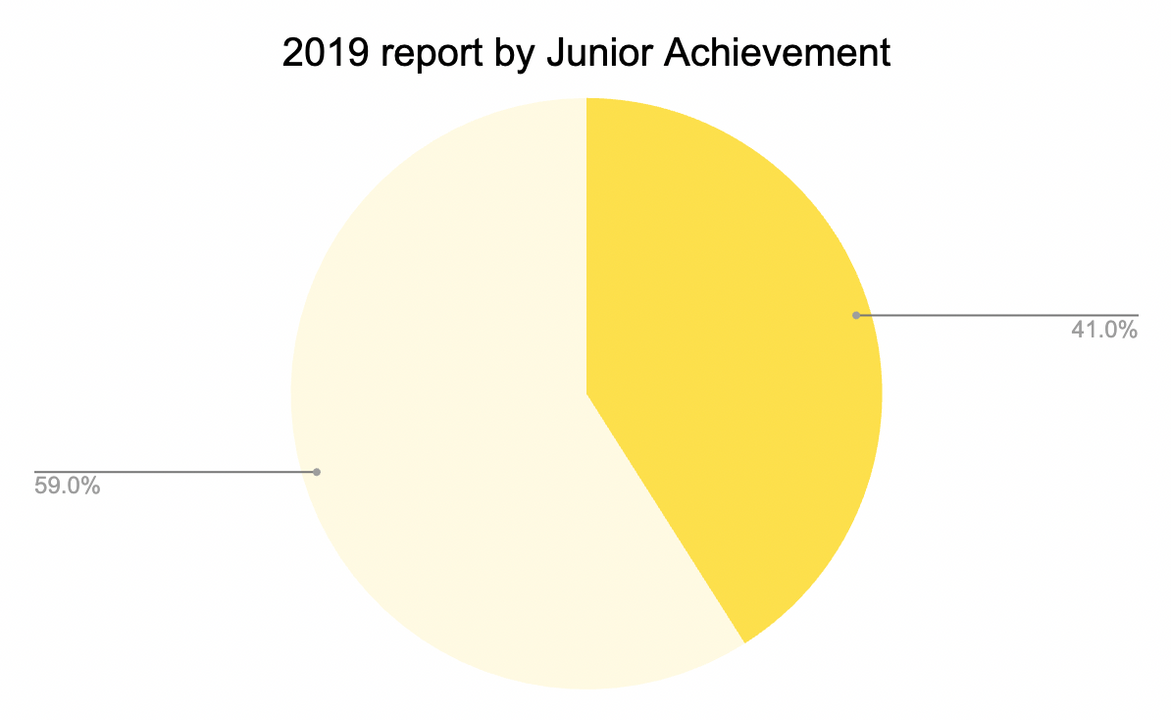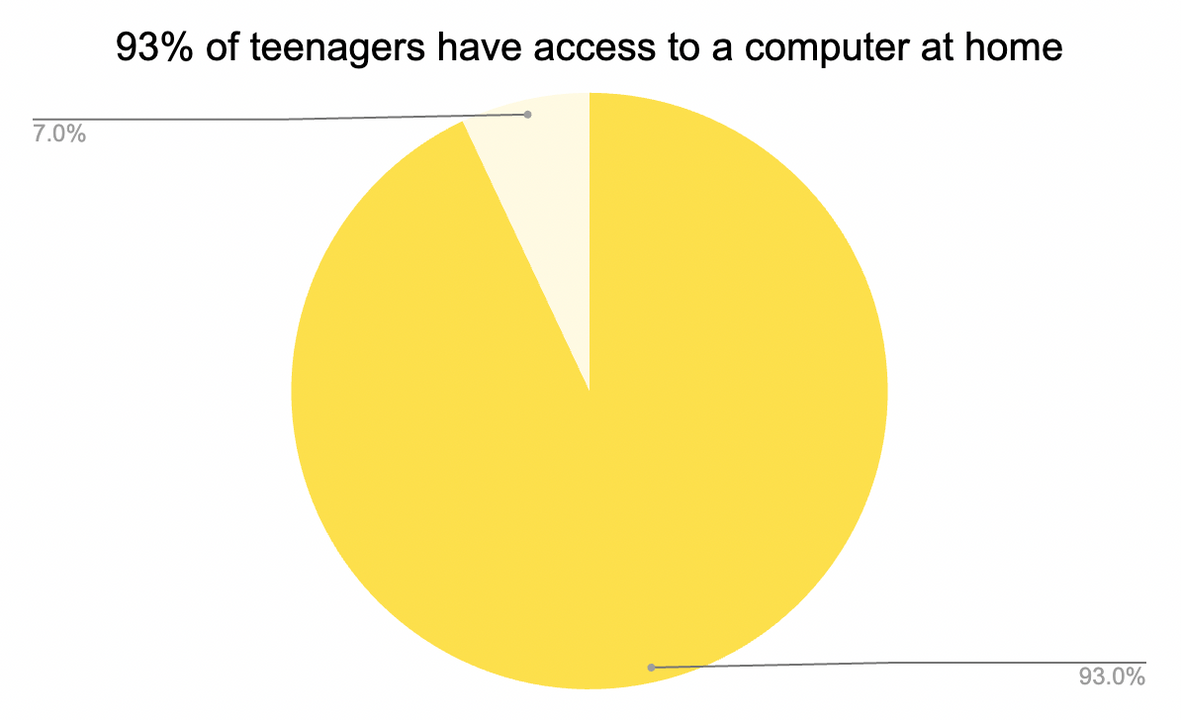How to Start an Online Business as a Teenager

by Eric Lam - Published 7/27/2023
by Eric Lam - Published 7/27/2023

The digital age has unlocked entrepreneurial opportunities for individuals across the age spectrum. No longer is business ownership exclusive to the older and more experienced.
The question isn't, "Can a teenager start an online business?" but rather, "How does a teenager start an online business?" This comprehensive guide aims to illuminate the path from youthful aspiration to successful entrepreneurship.
Understanding the Concept of an Online Business
The scope and opportunities available in the realm of online business are immense and multifaceted. Whether you're considering opening an online store, where physical products are sold, or contemplating a business that offers digital services like tech support or web design, the internet serves as a robust platform for diverse business models. For the more tech-savvy, running an online game service or even developing your own online game can be a lucrative venture.
If you're creatively inclined, selling digital art or digital products like greeting cards and digital planners through your own website or online platforms offers great small business ideas. The internet also provides an avenue for content-based businesses, such as creating a blog, YouTube channel, or even becoming a social media influencer.
Many teenagers, especially high school students, have started to harness social media platforms to grow their online businesses. These platforms not only serve as valuable resources for marketing but also offer an immense audience reach. For example, Instagram and Facebook are particularly beneficial for visual businesses like art forms, while platforms like LinkedIn are more suited for service-oriented business models like web design or financial management services.
The sheer size of the online customer base, as indicated by Statista, provides a large potential customer base for online businesses, even for those run by teenagers. It's not just about local stores or local craft fairs anymore; you can target customers from different parts of the world. Whether your business idea is as simple as a lemonade stand in the virtual world or as complex as offering sophisticated tech support, the sky is the limit.
Cash flow and financial management are critical components that must not be overlooked. Ensuring you have a business bank account and understanding your living expenses are fundamental steps in this regard. With proper planning and execution, young entrepreneurs can turn their dream job into reality, all while managing school and free time.
By focusing on what you're passionate about, you're more likely to persist and overcome challenges, leading to a future career that's both fulfilling and financially rewarding. So, whether you're interested in pet sitting, lawn care business, or being a personal shopper, the online world has room for your unique talents and interests.
Why Teens Should Consider Starting an Online Business
There are significant reasons why embarking on an entrepreneurial journey as a teen is advantageous.
For one, it offers a practical education that supplements traditional schooling.

A 2019 report by Junior Achievement and Ernst & Young LLP indicated that 41% of teens would consider starting a business as a career option.
Furthermore, an online business provides financial independence, broadens perspectives, cultivates essential life skills such as responsibility and time management, and allows for personal growth.
Practical Steps to Starting an Online Business as a Teenager
Exploring Interests and Passions

Discovering your innate talents, interests, or subjects that ignite your enthusiasm is pivotal when launching an entrepreneurial venture, especially for young aspirants. Whether you're inclined toward artistic activities like painting or digital media, or you have a knack for technology, starting with what you love sets the foundation for a fulfilling business journey.
Engaging in an endeavor that you're passionate about not only keeps the entrepreneurial flame burning but also propels you to overcome barriers and roadblocks more readily. This level of resiliency is invaluable when dealing with challenges such as market competition, financial hurdles, or even self-doubt. In this vein, passion-driven entrepreneurship often results in superior engagement, reduced burnout, and a more sustainable business model.
The data from the Global Entrepreneurship Monitor underscores an important narrative: youth are primarily motivated by opportunity and enthusiasm as opposed to sheer necessity. This affirms the merit of orienting your business ideas around personal interests or hobbies, as it's likely to elicit greater dedication, innovation, and ultimately, success. These often result in a great business idea which can end up being big or small.
Utilizing skills like project management, adaptability, and emotional intelligence will also contribute to the longevity and growth of your business. These competencies work hand in hand with your interests, amplifying the quality and depth of your offerings. Moreover, enthusiasm for your chosen field can naturally lead to greater expertise, enhancing your business's credibility and competitive edge.
If your interest lies in niche markets, for example, sustainable products, fitness and health, or experiential travel, the interest-driven model allows you to capitalize on specialized knowledge, thereby carving out a unique space for your business. The 'passion-to-profit' model is especially pertinent in today's sharing economy, where platforms such as Etsy or Fiverr allow you to monetize even the most specific skill sets or product offerings. Deciding what type of business you want to create is also an important component to figure out.
Conducting Market Research

After identifying your passion, understanding your target market is crucial. This process involves analyzing prospective customers, identifying existing competition, and recognizing industry trends. The Pew Research Center's data highlights that 93% of teenagers have access to a computer at home, suggesting a large potential customer base for teen online businesses. Your research might involve surveys, reading industry reports, or online tools like Google Trends.
Developing a Business Plan

Creating a comprehensive business plan serves as an indispensable blueprint for guiding your entrepreneurial journey towards success. It encompasses various critical elements such as your business model, value proposition, market segmentation, competitive landscape, and revenue streams. In particular, this document should detail the following components:
- Business Idea and Objectives: Clearly articulate your mission, vision, and both short-term and long-term goals. This section can also cover your unique selling proposition (USP) and key performance indicators (KPIs).
- Market Analysis: Utilize data-driven insights to define your target audience, evaluate market demand, and identify market gaps. Tools like SWOT analysis (Strengths, Weaknesses, Opportunities, Threats) and PESTLE analysis (Political, Economic, Social, Technological, Legal, Environmental) can be useful here.
- Organizational Structure and Team: Describe your company's hierarchy, roles and responsibilities, and potential human resource needs. Introduce your founding team, advisors, and any strategic partnerships.
- Operational Plan: Outline the day-to-day management of your business, including supply chain logistics, inventory management, and quality control procedures.
- Marketing Strategy: Dive into your go-to-market approach, customer acquisition and retention strategies, public relations, and channels of distribution. Make sure to include a digital marketing strategy encompassing SEO, SEM, social media advertising, and influencer partnerships.
- Financial Projections: Generate income statements, cash flow forecasts, and balance sheets. Contingency plans for various risk scenarios, as well as a breakeven analysis, should also be incorporated.
- Regulatory Compliance and Ethical Considerations: Discuss any legal obligations, intellectual property, business licenses, or ethical standards that are pertinent to your business sector.
- Funding Requirements and Exit Strategy: If external funding is needed, specify the amount and type, be it venture capital, angel investment, or crowdfunding. An exit strategy, such as acquisition or IPO, can also be included for prospective investors.
The Palo Alto Software study provides empirical backing to the integral role that a well-structured business plan plays. Their finding that entrepreneurs with robust plans are 16% more likely to attain business viability accentuates the importance of meticulous planning.
Building an Online Presence
Building a robust online presence is akin to constructing a digital storefront that operates 24/7, reaching a global audience. This goes beyond just having a website or social media accounts; it involves a strategic amalgamation of multiple digital channels and tools. Here’s how to get started:
- Professional Website: Invest in creating a visually appealing, user-friendly website that is also mobile-responsive. Your website should house essential components like an "About Us" section, product or service catalog, testimonials, and a blog for content marketing. Utilize on-page SEO techniques such as meta tags, headers, and keyword-rich content to improve search engine rankings.
- UI/UX Design: Prioritize an intuitive User Interface (UI) and exceptional User Experience (UX) to keep visitors engaged. Utilize A/B testing to determine the most effective designs and calls-to-action (CTAs).
- Social Media Engagement: Platforms such as Instagram, Facebook, Twitter, and LinkedIn are invaluable for brand building. Utilize these networks for targeted ads, interactive polls, live streams, and sharing valuable content. Each platform serves a different demographic, so adjust your content strategy accordingly.
- Email Marketing: Develop an email list to communicate directly with your customer base. Automate a sequence of welcome emails, product updates, and personalized offers. According to various studies, the ROI for email marketing is exceptionally high.
- Content Strategy: Leverage a mix of written articles, video content, podcasts, and infographics to attract and engage your audience. Content marketing not only boosts SEO but also establishes you as an industry expert.
- Analytics and KPIs: Use digital analytics tools like Google Analytics or Adobe Analytics to track KPIs such as website traffic, bounce rate, conversion rate, and customer lifetime value (CLV).
- Influencer Collaborations: Partner with social media influencers who align with your brand’s values to reach a broader yet targeted audience.
- Customer Reviews and Testimonials: Feature customer testimonials or case studies to build trust. Sites like Trustpilot and Yelp can also help gather customer reviews.
- Online Customer Support: Incorporate chatbots, FAQs, or a helpline to assist customers in real-time, thus improving customer satisfaction and retention.
The Pew Research data underlines the staggering opportunity for marketing to younger demographics, with 97% of teens actively using major online platforms. This suggests a ripe market, especially for local businesses targeting this age group.
Marketing and Promoting Your Business
Effective promotion is key to attracting customers. Digital marketing strategies include SEO, content marketing, social media marketing, and email marketing. EMarketer reported that the average email marketing ROI is 122%, indicating its effectiveness in driving customer engagement.
Marketing and promoting your business is an intricate process that involves a multi-faceted approach. Search Engine Optimization, or SEO, is a cornerstone, focusing on optimizing your website to rank higher in search engine results, which boosts organic traffic. Alongside SEO, content marketing is pivotal, offering valuable resource of information through articles, blogs, and videos to build your brand's authority and engage your target audience. Digital platforms like Instagram, Twitter, Facebook, and LinkedIn are indispensable for social media marketing, allowing you to connect directly with your customer base. Email marketing remains one of the most effective channels for customer engagement, boasting a remarkable ROI of 122% according to EMarketer. Pay-per-click advertising and Google AdWords are also beneficial for immediate traffic and sales. Additionally, affiliate marketing can expand your reach by collaborating with influencers or bloggers in your industry. The importance of data analytics cannot be overstated as it enables data-driven decision-making by tracking critical metrics such as customer lifetime value and conversion rates.
Understanding and Complying with Legal Requirements
Being legally compliant protects your business from potential liabilities. Legal aspects include registering your business name, understanding contracts, and meeting any regulatory requirements, including tax obligations. Always consult with a legal expert to ensure all bases are covered.
Ensuring your business is legally compliant is equally crucial. Registering your business entity, whether it's an LLC, Sole Proprietorship, or Corporation, safeguards your brand and has varying implications for taxes and liability. Contracts and legal agreements with vendors, employees, and partners must be meticulously understood and executed. Regulatory requirements, which can range from data protection laws like GDPR to industry-specific guidelines, must be diligently followed. Understanding your tax obligations, both federal and state, is essential, as is protecting your intellectual property rights through patents, copyrights, or trademarks. Liability insurance offers an added layer of protection, and consultation with legal experts is highly recommended to navigate complex legal waters.
Challenges and How to Overcome Them

Time management is often the first obstacle, especially for those juggling educational commitments, business operations, and personal responsibilities. Utilizing productivity tools like time trackers, project management software, and priority lists can assist in streamlining tasks. When it comes to the lack of experience, mentorship and industry networking are invaluable assets. Platforms like LinkedIn, industry-specific forums, and events offer opportunities to connect with experts who can provide insights and advice. Insufficient capital is another significant barrier, but modern solutions like crowdfunding, angel investors, and venture capital present alternative funding routes beyond traditional loans. The emotional toll of failure or setbacks is often underestimated. Emotional intelligence and stress management techniques like mindfulness can serve as coping mechanisms. A strong support network, both professional and personal, provides not just emotional backing but also constructive criticism and diversified perspectives. Moreover, the importance of continuous learning and professional development can't be overstated. Webinars, online courses, and reading industry literature can keep you abreast of emerging trends and technologies, making the navigation of these challenges more manageable.
Success Stories: Inspiring Teen Entrepreneurs
The world of entrepreneurship is no longer limited by age, a fact vividly illustrated by the remarkable journeys of young innovators like Moziah Bridges and Ben Pasternak. Bridges took the fashion industry by storm when he started Mo's Bows, a specialized company dealing in custom, handcrafted bowties, at just nine years old. On the other side of the spectrum, Pasternak shattered the tech ceiling when he became the world's youngest tech entrepreneur at age 15, paving the way for countless others to envision themselves following similar paths. Their inspiring stories exemplify the boundless opportunities available in diverse sectors, be it retail, technology, digital marketing, software development, or eco-friendly innovations.
But what sets these young achievers apart? It's not just raw talent or youthful exuberance, but a potent combination of market savvy, relentless focus, strong mentorship, digital literacy, risk-taking propensity, and adaptability. They prove that with the right skill set and mindset, tapping into commercial opportunities and niches is plausible regardless of age restrictions or conventional societal norms.
Moreover, these awe-inspiring stories do more than just celebrate individual victories; they serve as compelling testimonials to the transformative power of youth entrepreneurship on a larger scale. They reveal how harnessing creativity, adopting disruptive technologies, and utilizing robust platforms can lead to scalable, sustainable business models, even if you are navigating the complexities of academia or grappling with the restrictions that come with being a minor.
Whether the objective is retail disruption through innovative product designs, like in the case of Mo's Bows, or leveraging technology for game-changing solutions, as Pasternak did, these narratives showcase that age is an inadequate metric to gauge entrepreneurial potential or commercial acumen.
Therefore, their narratives aren't just individual success stories; they're virtual masterclasses in resilience, innovation, and strategic planning, offering invaluable insights into how one can seize opportunities and convert them into commercial triumphs, irrespective of their age.
Tips and Advice for Teen Entrepreneurs
Starting a business requires patience, hard work, and resilience. Always be open to learning, accept failures as stepping stones, and seek help when needed. Remember, the journey of entrepreneurship is a marathon, not a sprint.
Conclusion
Initiating an online business as a teenager might seem daunting, but with the right approach, guidance, and tenacity, it's achievable. This guide provides a comprehensive roadmap to start your entrepreneurial journey. So, are you ready to turn your great business idea into profit?
FAQs
1. Can a teenager start an online business?
Yes, a teenager can start an online business, provided they have parental consent where required and adhere to legal requirements.
2. How can I fund my online business as a teenager?
You can fund your own small business either through personal savings, crowdfunding, small business grants, or by attracting investors.
3. What are some good online business ideas for teens and teenagers?
Online businesses for teenagers can range from selling handmade goods, offering digital services like graphic design, starting a blog, or even creating a YouTube channel.
4. Do I need a business plan as a teenager?
Yes, having a business plan helps outline your ideas, goals, and strategies, providing a roadmap to your business success.
5. Can I legally sell products online as a teenager?
Yes, you can sell products online as a teenager. However, you must understand and comply with online selling regulations, and parental consent may be required in some areas.
Want to learn more?
We'll share with you charts, SEO data, and the businesses that are working, and how you can ultimately ride trend waves, and make over 6 figures capitalizing on your own online business as a teenager.
👉Become an Exploding Ideas Pro Member to unlock our Deep Dives on how to build your own online business.

